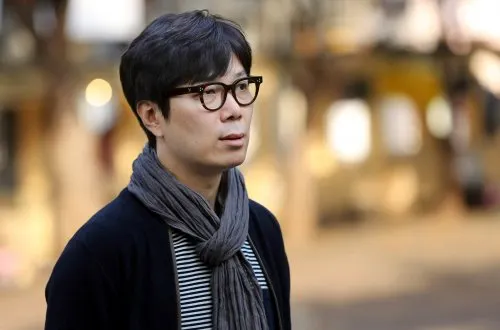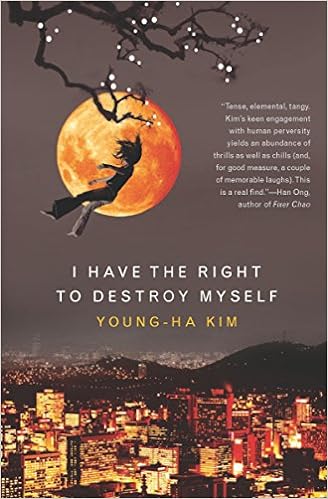In the fast-paced, high-urban landscape of Seoul, C and K are brothers who have fallen in love with the same beguiling drifter, Se-yeon, who gives herself freely to both of them. Then, just as they are trying desperately to forge a connection in an alienated world, Se-yeon suddenly disappears. All the while, a spectral, calculating narrator haunts the edges of their lives, working to help the lost and hurting find escape through suicide. When Se-yeon reemerges, it is as the narrator’s new client.
Recalling the emotional tension of Milan Kundera and the existential anguish of Bret Easton Ellis,
I Have the Right to Destroy Myself
is a dreamlike “literary exploration of truth, death, desire and identity” (
Publishers Weekly
). Cinematic in its urgency, the novel offers “an atmosphere of menacing ennui [set] to a soundtrack of Leonard Cohen tunes” (
Newark Star-Ledger
).
“Kim’s novel is art built upon art. His style is reminiscent of Kafka’s and also relies on images of paintings (Jacques-Louis David’s ‘The Death of Marat,’ Gustav Klimt’s ‘Judith’) and film (Jim Jarmusch’s ‘Stranger Than Paradise’). The philosophy—life is worthless and small—reminds us of Camus and Sartre, risky territory for a young writer. . . . But Kim has the advantage of the urban South Korean landscape. Fast cars, sex with lollipops and weather fronts from Siberia lend a unique flavor to good old-fashioned nihilism. Think of it as Korean noir.” —
Los Angeles Times
“Like Georges Simenon, [Kim’s] keen engagement with human perversity yields an abundance of thrills as well as chills (and, for good measure, a couple of memorable laughs). This is a real find.” —Han Ong, author of
Fixer Chao


